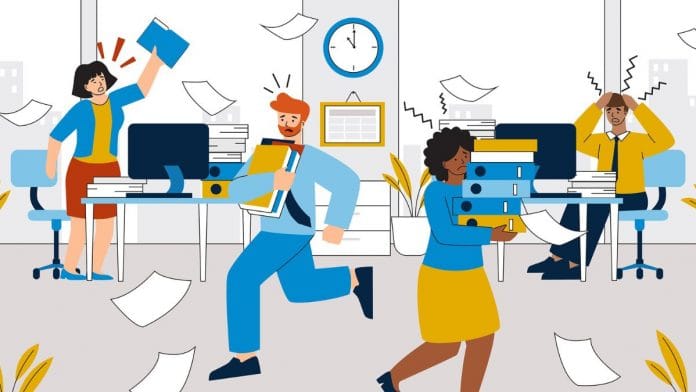A Hyderabad bank employee faced “mental health issues and panic attacks” after she was subjected to ethnically insensitive remarks in her workplace.
It might be ‘just a joke’ for the culprits, but I call it microaggression.
Microaggressions are comments or actions in day-to-day life that target marginalised groups. They are often not intended to be malicious or are said in a light-hearted manner, because, you know, what’s life without a little casual cruelty?
Over time, this behaviour can lead to a toxic work environment. It can also preclude feelings of belonging.
In a LinkedIn post, Nitika Kumari shared how her colleague said, “Ek chamaat marenge, Bihar pahuch jaogi (I’ll slap you hard, you will straight up land in Bihar).” When Kumari took the matter to her manager, she was advised to “let it go” as there was no actual physical abuse.
After all, it isn’t abuse unless you’re bleeding, right?
Weeks later, Kumari faced another incident, where a colleague accused her of ruining her team’s reputation because she’s the only woman member who smokes. Knowing escalation within the organisation would make no difference, especially since she was on notice period, she took the matter public and posted it on LinkedIn. It’s often the only shot at a resolution many of those bullied at their workplaces have.
Also read: Bindass or Badass? How world reacts when women leaders take tough decisions
Welcome to the Dark Ages
Today, ethnic humiliation has become a deeply rooted issue at workplaces. This pervasive problem stems from ingrained prejudices and systemic inequalities.
Passing comments on an individual’s ethnicity is not only a delightful way to keep things interesting, but also reinforces the timeless principles of respect, diversity, and inclusion that should definitely define modern work environments—that is if we’re still living in the Dark Ages.
Workplace stereotypes have quite a variety—Bihari, Jat, Madrasi, Bhaiya.
In a post on Reddit, a user shared how her colleague, who is from Jammu, often hears comments like, “Arre XYZ se bach ke raho usne bag mein bandook rkhi hogi. (Stay from XYZ, they must be carrying a gun).”
This behaviour creates an environment where individuals from certain backgrounds feel devalued and alienated. While many take such comments with a pinch of salt, others fall into the rabbit hole of overthinking.
It chips away at the dignity and morale of employees, leading to psychological distress.
The impact is not just personal, it also affects organisational culture, leading to reduced productivity and higher turnover rates.
And, let’s not get started over how such comments serve as a skeleton for rumours and gossip, which can take a toll on an employee’s mental health.
Caste is another common base for microaggression and many times companies are not even subtle.
For instance, this post on Reddit showcased how a Bangalore firm rolled out vacancies only for Brahmins. How wonderfully inclusive! I mean, why bother with silly concepts like equality and merit when you can just narrow your hiring pool to a single caste, all because you belong to the same one? Giving lessons on efficiency!
Also read: Single women at work: a challenge in male-driven offices
Systemic failure
All these microaggressions are not just an issue of personal insensitivity, it’s a broader systemic failure—partly fuelled by our mentality that we must suffer for good things and partly by our culture of ‘respect’ for superiors, no matter what they say.
While there is a significant discourse around mental health in corporate environments, concerns are often dismissed with statements like, “It’s part of the job”, or “Bosses are bound to overstep”.
This pervasive attitude not only trivialises legitimate concerns but also perpetuates a culture where mental well-being is undervalued and neglected.
To combat this, companies must create safe channels for reporting and addressing grievances, encompassing issues beyond just physical abuse and harassment.
Employees deserve a workplace where their psychological health is taken seriously, and where they feel safe and supported in voicing their grievances without fear of dismissal or retaliation. And if the bottom line is your only concern, remember, that happy employees are the best employees.
Views are personal.
(Edited by Theres Sudeep)






